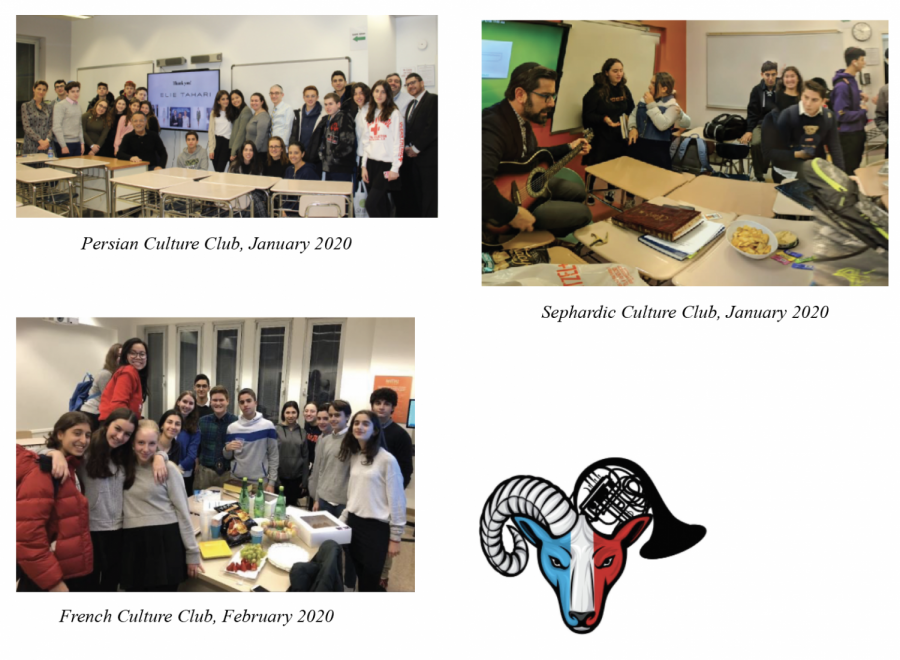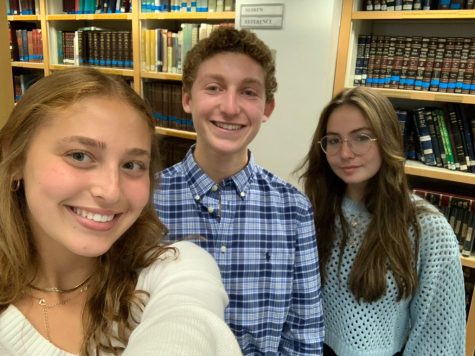The Importance of Culture Clubs at Ramaz
While every student at Ramaz shares their Jewish identity, each student’s families come from different countries around the world, and therefore have his or her own cultures, which that student brings to the Ramaz community. Some are Polish, French, or Russian, while others identify as Syrian, Persian, or South African. While some students know all about their heritage and family’s customs, others simply consider themselves American Jews: they do not even know where their ancestors are from. And, many students lack any knowledge of cultures outside of their own. An Ashkenaz student may not know what kaak is, while a Syrian might give a blank stare when asked the first ingredient in cholent. That is why many believe the culture clubs at Ramaz are so critical. One can often find Schoology posts about the Asian Culture Club, Sephardi Culture Club, Persian Culture Club, French Culture Club, or Latin American Culture Club announcing a guest speaker, cultural newspaper, or other educational program open to all Ramaz students.
These clubs were created to teach Ramaz students about different cultures. For example, Gabby Ostad ’21, the founder of the Persian Culture Club, said, “I was eager to establish a club that would engage the Persian students of the Ramaz and at the same time be able to share the rich Persian culture with the broader Ramaz community.” Captain of the French Culture Club, Samantha Sinensky ’21, said that after taking two years of French in middle school, she “was caught up in the allure of the French language and history and I was eager to extend my love for the French language beyond the classroom. When I discovered the French Culture Club, I knew this was a great opportunity for me to take a deep dive into French culture.”
These clubs cannot function without a faculty advisor, and it is important that the faculty advisor is invested in the club. Dr. Roldan, the faculty advisor for the Latin American Club, noted that her support for the club started because “the founders are bright and enthusiastic students that recognized the need to celebrate and learn about our people and their different and valuable traditions.” Dr. Roldan thinks that it is an amazing opportunity to learn about the different parts of Latin American culture, including heritage.
Although each of these clubs focuses on one specific culture, according to Samantha Sinensky, they are aiming to “bring people together who love celebrating cultural differences.” Rachel Abelson ’24, captain of the Asian Culture Club, said, “Our club not only shows so many different aspects of the cultures in Asia and helps prepare students who are interested in traveling to Asia sometime soon, but it also allows everyone to understand a new culture.” She hopes that through this club, people will understand that despite some differences, all people are really not so different and “the club can inspire people to act better toward others who are different.”
Overall, the transitions to Zoom for these clubs have been overwhelmingly successful. One main reason for this was the later start time after school. While a club used to meet right after school, many now start at 6:00, 6:30, or even 7:00 pm. The low commitment these clubs offer and later start time allows more students to participate in the meetings. During their meetings, the culture clubs tend to either host guest speakers or a student will prepare a slideshow to present. For example, the Persian Culture Club has brought two guest speakers this year, who are both Persian Jews: Manhattan DA candidate Mrs. Tali Farhadian Weinstein and NY State Senator Anna Kaplan. In March, the French Culture Club will host Dr. Caroline Weber, a professor of French Comparative Literature at Barnard College. She wrote Queen of Fashion: What Marie-Antionette Wore to the Revolution. The Russian culture club has played a fun game of Kahoot aimed at teaching the participants some basic facts on the country’s traditions.The Asian Culture Club captains decided to start the year off with different Chinese traditions and will begin focusing on Asian cuisine next semester.
As Dr. Roldan said the culture clubs are “a great opportunity for the entire community to learn” about the different cultures present and active at Ramaz.




